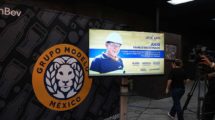Por Carlos Ruiz González,Profesor del Área de Política de Empresa (Estrategia y Dirección) en el Instituto Panamericano de Alta Dirección de Empresa (IPADE).
cruiz@ipade.mx
Quizá primero habría que establecer su principal función: el Director General es responsable por la actuación y el bienestar de su empresa, para lo cual debe asumir tres roles:
Estratega: es el rol más conocido, el Director debe crear una visión de lo que será su empresa y cómo lograrlo; una buena estrategia no es sólo lo que se desea obtener (el objetivo), para que sea realista y alcanzable debe incluir el plan de acción (cómo se alcanzará el objetivo) y los recursos, competencias y habilidades (el “con qué”), no se trata sólo de los recursos financieros, aquí también se incluye a las personas y las habilidades particulares de la empresa.
Las partes de este rol son:
- Definir la estrategia y los objetivos estratégicos que dan forma a la dirección de la empresa,
- Crear y mantener las normas y valores organizacionales
Constructor de la organización: No se queda el asunto en buenos deseos, hay que hacer que las cosas sucedan, que las ideas se realicen (y que las realice precisamente la empresa), el Director también tiene el papel de “construir” la empresa, y para ello va desarrollando las capacidades organizacionales para crear e implementar la visión que definió como estratega. Las partes de este rol son:
- Negociar con los involucrados (en inglés stakeholders), todos aquellos que sin estar teóricamente dentro de la empresa se “interrelacionan” con ella (clientes, proveedores, gobierno, comunidad, etc).
- Localizar, obtener, ordenar y asignar recursos (sobre todo considerando que los recursos siempre son escasos, por lo tanto, la asignación debe de ser estratégica, casi nunca alcanza para todo, hay que distribuirlo bien).
- Organizar el trabajo.
- Dar forma al ambiente/entorno de trabajo.
Operador: Una cosa es la estructura, es decir, la organización, y otra cosa es que funcione, que opere; el Director debe asegurar que las acciones necesarias sean tomadas para alcanzar los resultados deseados. Las partes de este rol son:
- Cuidar las operaciones actuales.
- Desarrollar a las personas, hay que seleccionarlas, prepararlas, motivarlas y retribuirlas muy bien.
Esto es sólo un listado de sus actividades, habría que añadir dos aspectos importantes sobre la manera en que hace las cosas.
Visión bifocal: el Director siempre tiene presentes el largo y el corto plazo. El largo, porque ahí está el destino, ahí se encuentra la visión de lo que la empresa aspira a ser; el corto plazo, porque ahí está la batalla por la supervivencia (y si no superamos el corto plazo, no llegaremos al largo).
Anticiparse, en vez de reaccionar: un buen Director se anticipa, trata de ser proactivo más que reactivo, incluso trata no sólo de anticiparse sino de provocar que suceda lo que él desea, llegando incluso a marcar o definir las reglas del juego en su sector
Ejemplo: hay muchos y muy buenos Directores Generales en México, entre ellos podemos mencionar a Gastón Azcárraga Tamayo. Cuando a mediados de los sesenta vendió su participación en la entonces Automex (actualmente Chrysler), decidió entrar a un sector de manera muy profesional y empezó a incursionar en el turismo, específicamente en los hoteles, creando y renovando la visión de lo que sería su empresa y cómo lo lograría
También fue un gran constructor de organizaciones, hoy la empresa que creó (Posadas de México) es una de las cadenas hoteleras más grande de América Latina; como constructor de organización fue desarrollando las capacidades organizacionales para tener las habilidades requeridas y poder competir en esta industria e ir cumpliendo su visión.
Finalmente, fue un gran operador, aseguró que se tomaran las acciones necesarias, creando y asignando recursos y desarrollando a las personas. Además, tuvo un gran sentido social, en 1967 contribuyó (junto con un grupo de empresarios destacados, entre los que se contaba Don Manuel Senderos) a la creación del IPADE y posteriormente de la Universidad Panamericana, ayudó y presidió la Junta de Gobierno de ambas instituciones. Un gran Director.
………………………………………………………………………………………………………………………………
The Role of the CEO
What does a CEO do? We know he/she is the most important person of a company, we also know that he/she makes extremely important decisions and foresees (or at least, tries to) events. But if we were asked to define this position, specifying the actions he/she takes, what would we say?
First of all, we should establish the principal duty: The CEO is responsible for the actions and well-being of the company by assuming three roles:
Strategist – This is the most known role, the CEO needs to create a vision for the company and determine the way to achieve it. A good strategy comprises not only what is desired to achieve (the objective), to make it realistic and attainable it has to include an action plan (how to accomplish the objective) as well as the resources, competencies and abilities (“which tools”); and it is not simply about the financial resources, it also needs to include the people and particular abilities of the company. The components of this role are:
- Defining the strategy and strategic objectives that shape the company’s direction
- Creating and maintaining the organizational rules and values
Builder of the Organization – Things do not remain in wishful thinking, everything must be set in motion and have the company carry out the ideas; the CEO needs to “build” the company and, to accomplish this, he/she develops the organizational capabilities to create and implement the vision he/she has defined as strategy. The components of this role are:
- Negotiating with all the involved parties: stakeholders and those who theoretically are not part of the company but “interrelate” with it (clients, suppliers, government, community, etc.)
- Locating, obtaining, ordering and assigning resources (above all considering that resources are always scarce, for which the allocation must be strategic; hardly ever is there enough for everything, so they must be well assigned.)
- Organizing the work
- Shaping the work environment
Operator– One thing is the structure, in other words the organization, and another if it works, if it operates; the CEO must ensure that the necessary actions are taken to achieve the desired results. The components of this role are:
- Taking care of the current operations.
- Developing people; they must be selected, trained, motivated and handsomely rewarded.
This is only a list of activities, we should add two important aspects regarding the way things are done:
Bifocal Vision – The CEO always considers the long and the short term. The long term refers to the purpose, the vision of what the company aspires to become; the short term involves the battle for survival (and if we do not surpass the short term we would never reach the long term.)
Anticipate, instead of react – A good CEO anticipates, tries to be proactive instead of reactive; he not only anticipates but makes things happen, and may even define the rules of the game in his sector.
For example: There are many and good CEOs in Mexico, among which we can mention Gastón Azcárraga Tamayo. When he sold his shares of Automex (now Chrysler) during the mid sixties, he decided to enter a sector in a very professional manner and made an incursion in the tourism sector, specifically in hotels, creating and renovating the vision of what his company would be like and how he would achieve it.
He also was a great organization builder. Today, the company he created (Posadas de México) is one of the largest hotel chains in Latin America; as a builder of the organization, he continously developed the organizational capacities in order to have the required abilities to compete in this industry and fulfill his vision.
Finally, he was a great operator. He made sure the adequate actions were taken; creating and assigning resources and developing people. In addition, he had a great social sense; in 1967, he contributed (together with a group of distinguished entrepreneurs who included Don Manuel Senderos) in the creation of the IPADE and later the Universidad Panamericana. He helped and presided the Government Assembly of both institutions. He was a great CEO.

























Necesito artículos referidos al rol del Director ejecutivo o Gerente Gral. de una empresa de salud, no sanatorio. Hacemos rehabilitación fisiátrica en domicilio y ambulatorio. Es muy específico y no encuentro textos apropiados. Mis saludos cordiales